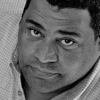Chris Abani

Chris Abani
Christopher "Chris" Abaniis a Nigerian and American author. He says he is part of a new generation of Nigerian writers working to convey to an English-speaking audience the experience of those born and raised in "that troubled African nation"...
NationalityNigerian
ProfessionNovelist
Date of Birth27 December 1966
CountryNigeria
fun book character
Unlike other books or TV shows or sometimes life, my narrative worlds are stripped of implicit moral centers. There is only what you bring. That makes the characters risky in every way and the narrative, a journey of change for the reader. But I make the journey as fun as I can.
book writing journey
I think that most writers who are trying to write important and difficult books are in many ways putting their own humanity into question. Sometimes the journey is finding out where you stand in relationship to your own humanity and to the humanity of others.
book alphabet shelves
My books are often shelved around those of Chinua Achebe and Margaret Atwood, or Chimamanda Adichie and Monica Ali. All of this depends, of course, on the bookstore and how conversant the shelf stocker is with the alphabet.
book thinking two
I think a book that is over 400 pages should be split in two. I don't know that there's anything that interesting that can go on for 700 pages. I think that is a little bit indulgent.
nonfiction bookstores internet
In this time of the Internet and nonfiction, to be on an actual bookshelf in an actual bookstore is exciting in itself.
book fiction narrative
Fiction is risky for writers also in that the process of making certain books, of shaping certain narratives, leaves scars and marks on your inner life.
country real book
Fiction is more dangerous than nonfiction because it can seduce better. I think we all know this, know that deeper truths can be approached in fiction than in fact. There are risks for the reader, because after reading certain books you find you have changed irreversibly. There are risks for writers: in China, now, and Ethiopia and other countries right now, writers face real persecution.
books bother certain four impressed lessons life looking people smart style three wanting
I have to have three or four books going simultaneously. If I'm not impressed in the first 20 pages, I don't bother reading the rest, especially with novels. I'm not a book-club style reader. I'm not looking for life lessons or wanting people to think I'm smart because I'm reading a certain book.
entirely grand lives meant uncle ways
My grand uncle was a traditional priest, and he would always say to me as a kid, 'We stand in our own light,' which essentially for him meant we were entirely responsible for a lot of what happens to us and for the ways in which our lives play out.
mean love-is creative
Love is at once the most creative and yet simultaneously destructive force in the world, and thus, in our lives. And I don't mean the Hallmark sentimental type of love, although that is part of it. But a deeper obligation that we have to each other: the obligation to reflect our humanness at each other, to reflect back the things others show us and we, them.
real reading character
Since I hold no judgments against my characters, no matter how heinous they might seem, I present them as real people with their own moral centers. We might feel those moral centers are mis-calibrated, but they are there and are the rudders that propel them. This makes reading my work a visceral roller coaster, 'cause the reader must embark on the journey of the protagonist equipped only with his or her own moral center.
holocaust historical survivor
The truth is that History, with its imposing capital H, is simply the amalgamation of many quotidian lives lived in very ordinary ways. History is always personal. If you read Holocaust survivor or American slavery survivor narratives, you realize all too well that these great Historical moments were personal to someone at some time.
shadow ordinary encounters
If you encounter a human shadow burned permanently into the concrete in Hiroshima, you realize that this is the trace of a very ordinary person now elevated into the emblematic. Time, shame, complicity, or discomfort are the only things that make us pretend History is impersonal or far removed from the power and consequences of our every lived moment.
thinking cities forests
I think cities are the primordial forests of our time. We evolve faster as a species in cities. Cities are chaotic, liminal places where the many aspects of human potential, good and/or bad, are most readily magnified.